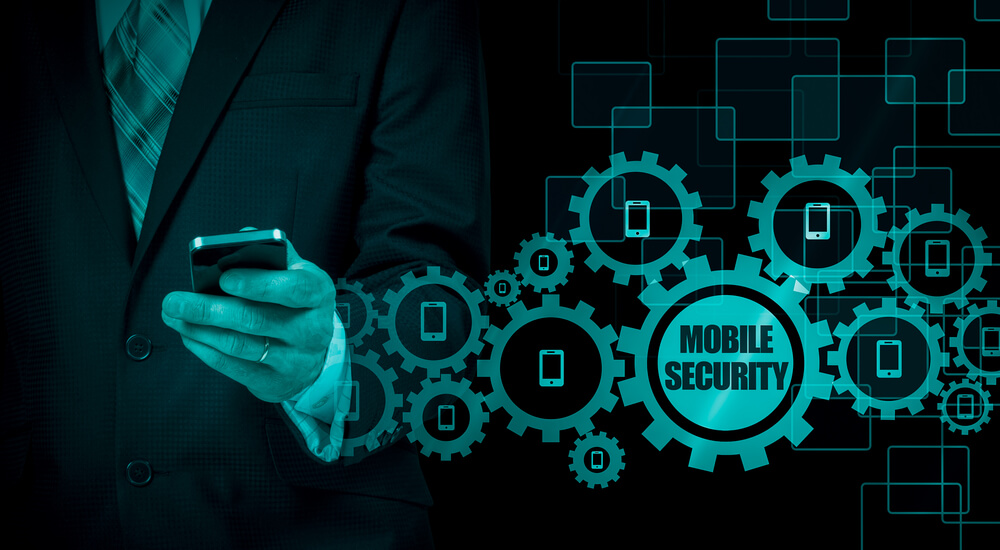
Take a moment to think about apps used daily on your smartphone. Facebook? Twitter? Email? Web browser? No one wants to be stalked or let anyone see their personal information from their smartphones. Think about leaving your phone unlocked while you're at home or unattended on your desk while going for meeting at work. What if someone looks at your messages on your phone or Facebook messenger? What if your colleague sees your emails that you sent to your boss regarding their behavior? It is one step closer to a hack into your privacy by leaving your phone out of your sight. You should strongly consider the threats and risks related to keeping information saved in your phone. Always locking your phone is a good starting point but it is not the only means to secure your data and information. You need to ensure that messages/emails you receive via various apps are not visible on screen while your phone is locked. You should be very careful about how, when and where you access your phone. Users should also be careful of sensitive information being searched and stored on their smartphones. The trend has changed quite a bit from last few years where people tend to use their personal cellphones lot more for their work. If you are someone who uses a personal phone to check and keep work emails, you should review and follow the guidelines from your company to ensure your work emails are secured at all times. A few months ago, Quincy Larson wrote a blog post titled, "I’ll never bring my phone on an international fight again. Neither should you." He explained how Sidd Bokkannaver, a US-born scientist at NASA’s Jet Propulsion Laboratory, was asked to unlock his NASA phone by Customs and Border Patrol agents. CBP officers made Sidd unlock his phone, and they kept the phone away from his possession for about 30 minutes. Incidents like this can happen to anyone of us while traveling abroad. Think about all of the searches you have made in your browser. Would you really want anyone to see all of those things that you were searching online? Therefore, you should make a habit of deleting history of all searches from your phone. Use of private browsing is even better. If you are leaving the country for a personal vacation, you should never carry a company cell phone with you as you may put your company data at risk. Though, if you must travel with your phone, you should take precautionary steps to not become a victim.
5 ways you can safeguard your smartphone
1. Stay away from unnecessary apps
There are many pop-ups for apps when surfing through Facebook – you may even click and install one of them accidentally. Once those apps are installed, users tend to forget to go back and delete those apps. You should keep up the habit of deleting apps that are not needed every few weeks. According to a survey from CNN, 54 percent of cell phone users in the U.S. have decided not to install an app once they discovered how much of their personal information it would access. Each app uses your personal information gathered from your smartphone; therefore, it is crucial to install only apps you use daily. You should also consider checking to see what information is gathered by the app you intend to install.
2. Protect sensitive data
As I mentioned above, keeping a PIN or key code to lock your phone is just one of many ways to secure your information. Most smartphone platforms offer software to encrypt sensitive files and folders on any device. Industry-standard protection can secure sensitive files, passwords, log in information and bank account information. It becomes hard for anyone to access the encrypted information without a code if the device gets lost or stolen.
3. Avoid public Wi-Fi
Using public Wi-Fi is a cheaper option to save on cell phone data but is not a secure choice, as the device sends data across the open network, which is unsecured. You should also check your network configuration settings on your device to ensure that it is not allowed to connect to any network when in range automatically. There are many threats associated with using public Wi-Fi. A malicious person may offer a free hot spot that looks like a genuine hotspot from a well-known company. Once a user connects to this “fake” hotspot, a malicious person then can get all the entered information recorded from user’s phone and send information like passwords and login information to their own server.
4. Backup
As we all are big on backups for our laptops and workstations, we should also back up important contacts, messages, documents and emails from phones to encrypted account setup in cloud. Mostly all devices have the option these days to automatically back up every night, which allows users to rest assured their data and information is backed up every day.
5. Security/Kill Switch
As you keep your laptops and workstations secured by having anti-virus software monitoring your system for threats and alerts, the same method should be utilized for your smart phone devices, as well. Additional devices can be included in your anti-virus plans, so that each of your devices is being monitored and protected. Additionally, Google and Apple currently offer users to set up a kill switch on their devices that locks and erases all content upon activating the kill switch in case their device is lost or stolen. You can set up this function by going to your device’s settings panel.
Conclusion
Above are some of many ways users can protect their privacy. We use our cell phone more to complete many daily tasks, including bank transactions and booking flights, that we used to complete in our laptops. Since we use this small smart device for almost everything, we should manage and keep it secured at all times.
Meet Fortra™ Your Cybersecurity Ally™
Fortra is creating a simpler, stronger, and more straightforward future for cybersecurity by offering a portfolio of integrated and scalable solutions. Learn more about how Fortra’s portfolio of solutions can benefit your business.

